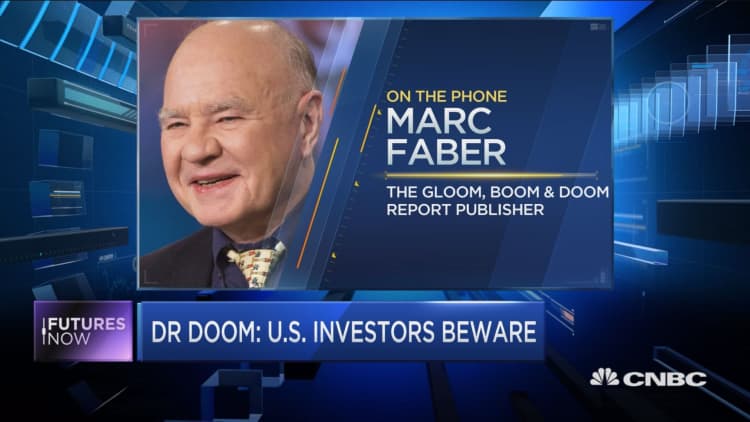
With 10 Dow records in a row, it wouldn't be a surprise if Wall Street's bull caught its breath in the near future.
Stocks closed mixed Thursday, but the Dow was the leader, in its longest streak of record closes since the first 13 trading days of 1987, when it had 12 records. Traders often wince when 1987 is mentioned since it is remembered well as the year of the famous October stock market crash.
The Dow Thursday was up 34 points at 20,810, while the rose about a point to 2,363 and Nasdaq fell 25 points to 5,835.
"We're due for at least a rest, if not a correction. We're way overbought," said Steve Massocca, managing director with Wedbush Securities. Massocca said the market will continue to focus on data, with a truck load of reports next week on everything from fourth-quarter GDP to inflation and auto sales. The other focus, of course will be on Washington.
Markets are looking forward to a light data calendar Friday, with new home sales and consumer sentiment at 10 a.m. ET. Earnings reports are expected from J.C. Penney, Foot Locker, Cabot Oil & Gas, Trivago, Public Service and EchoStar, among others, before the opening bell.
As it has since January, market focus will remain on the process and progress of Trump administration policies, particularly tax reform. Treasury Secretary Steven Mnuchin appeared on CNBC Thursday, and while he could not provide details of a tax plan, he said the administration is working with Congress to have a combined plan by August.
President Donald Trump's comments to Reuters late Thursday gave new life to the idea that a border-adjusted tax could be included in the plan when he said, "I certainly support a form of tax on the border." Trump said it could lead to new jobs in the U.S. But Trump has also said previously the specific border-adjusted tax is too complicated, and Mnuchin said there were both positives and negatives in the plan.
"Half of what the market is trading on is getting corporate tax rates down, in a nutshell. That would be bullish for earnings, and that's unambiguous," said Art Hogan, chief market strategist with Wunderlich Securities.
Under the House tax plan, the border-adjusted tax would tax all imports coming into the country and not tax exports at all. When news of Trump's comment hit the market, retail shares fell. Retailers and other importers are opposed to the tax and say it would be a tax on consumers, but industrial companies favor it. The tax is not expected to pass the Senate, so it's important whether Trump throws his support behind it.

House leaders see the border-adjusted tax as the only way to get a revenue neutral plan that can take the corporate tax rate to 20 percent, from its current 35 percent. Many big S&P 500 companies pay 25 percent or less, so there's not much impact with a tax cut to that level or above.
"It's political wildfire, if you ask me. People walk into the store and something that was $20 is suddenly $22, and they start asking why," said Massocca.
The market has been focused on Trump's upcoming speech to Congress Tuesday, with some hope that he will clarify some of the details around taxes. "I think this market has been patient to a point. We're waiting for policy to be put in place. … I think patience runs out at or near the State of the Union. If you don't have a clear path to at least corporate tax cuts by then, the vision of getting this done by August recess dissipates," said Hogan.
Massocca said Trump's policies have been behind the roughly 14 percent rise in the Dow since election day.
"All this Trump stuff is very pro-business, very pro-growth, and as annoying as he might be to a lot of people, the substance of what he's done so far, the stock market is telling you about," he said.
Massocca said he doubts Trump will reveal much at all about taxes Tuesday, and it's clear it won't be dealt with before Obamacare is repealed and replaced.
In the meantime, he's watching the economic data for what impact it might have on the Fed. The minutes from the Fed's Feb. 1 meeting this week were treated as dovish by the market, even though there was some expectation they would be more hawkish. Fed officials, including Fed Chair Janet Yellen, have been making it clear the March meeting is live and could be a time when the Fed hikes rates. But Wall Street mostly expects the next rate hike in June.
"If we start to get some hot economic numbers, there's going to be concern about a March increase," he said.


